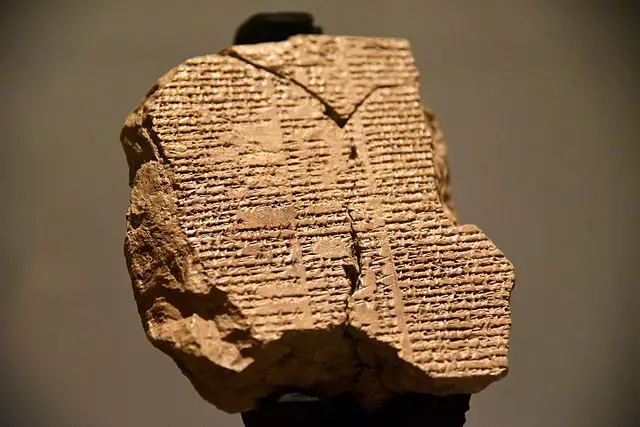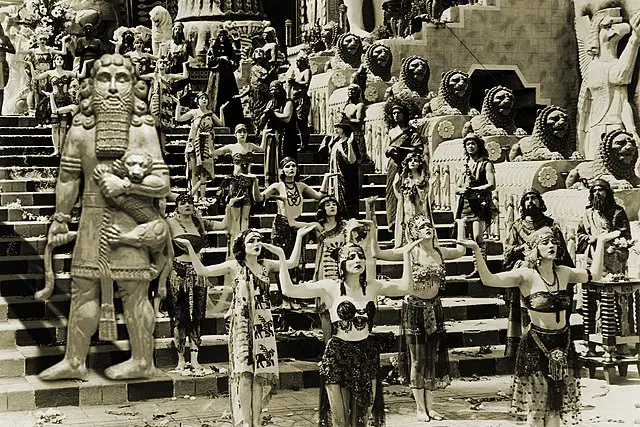The World’s Oldest Story Starts with a Man Who Couldn’t Die
Imagine this: A powerful king stands at the edge of the world, mourning his dead best friend and desperately chasing immortality. It sounds like something out of a gritty modern fantasy series, but it was actually written over 4,000 years ago.
That story is The Epic of Gilgamesh, and it might just be the most important tale you’ve never read. Or at least, never realized you were reading echoes of.
Because Gilgamesh didn’t just inspire stories. It helped invent them.
The Accidental Discovery That Changed Everything
In the mid-1800s, a British museum worker named George Smith was combing through shattered clay tablets dug up from the ruins of Nineveh. As he squinted at the cuneiform symbols, he found something that made him stand up and shout, then reportedly strip off his clothes in excitement.
Why? He had just stumbled across a passage eerily similar to the Biblical story of Noah’s flood but older. Much older.
It turned out to be part of a long-forgotten poem from ancient Mesopotamia. And it turned out that our earliest known civilization had a lot more to say than we ever expected.
Before the Bible, Before Homer, There Was Gilgamesh
Gilgamesh is considered the first epic in human history. Older than the Iliad, older than the Odyssey, even older than the Hebrew Bible. The earliest versions date to around 2100 BCE, carved into clay tablets in the Sumerian city of Uruk (in present-day Iraq).
And what a story it is. A demigod king abuses his power until the gods create Enkidu, a wild man, to humble him. They fight, become best friends, and go on wild adventures: killing forest monsters, rejecting goddesses, angering heaven.
Then Enkidu dies. And Gilgamesh loses his mind.
The second half of the story is grief, raw and poetic. It’s about searching for meaning, legacy, and life after death. It’s about being human.
Sound familiar? That template of a flawed hero, epic journey, deep loss, and lesson learned has been used ever since.

The Clay Tablets That Shook the World
For thousands of years, Gilgamesh’s tale was forgotten. Then, in the 1850s, British archaeologist Austen Henry Layard excavated Nineveh, the ancient capital of Assyria. Inside the ruined library of King Ashurbanipal, he found broken pieces of clay tablets.
One of his assistants, George Smith, would later piece together those fragments. As he translated the symbols, he realized he was reading the oldest written story on Earth.
It wasn’t just any story. It had a flood narrative strikingly similar to the Bible. It had themes found in Greek epics. And at its core, it had a hero asking, “Why must we die?”
History had to be rewritten. The roots of literature didn’t begin with Homer or Moses. They began with a grieving king, carved in cuneiform, on the banks of the Euphrates.
From Clay to Code
What makes The Epic of Gilgamesh even more remarkable is that it survived at all. Imagine writing a novel on a stack of fragile clay tablets and hoping someone doesn’t just drop them.
And yet, through empire collapses, language shifts, and time itself, Gilgamesh endured. Rediscovered in the 19th century, it’s now been translated into dozens of languages, studied in classrooms, and even remixed in video games and graphic novels.
It’s a story that outlived its civilization.
Why It Still Matters
Maybe you’re wondering, “Okay, so an old poem exists. Why does that rewrite history?”
Because it changes what we think about civilization, literature, and human nature. It reminds us that people 4,000 years ago were asking the same questions we are: What does it mean to be great? Why do we die? How do we live with loss?
It forces us to reframe the ancient world not as a prelude to ours, but as a mirror. They weren’t primitive. They were profound.
And maybe most importantly: they were us.
Final Thought: We Were Always Storytellers
The Epic of Gilgamesh doesn’t just survive history. It is history etched into mud by people who wanted their words to outlast time.
And in a weird way, they did. Gilgamesh may not have found immortality in the story… but the story itself became immortal.
So next time you hear a tale of a hero, a journey, and a loss that makes the world change, tip your hat to Gilgamesh.
He did it first.
Sources:
1. The British Museum: Gilgamesh Tablet
2. The New Yorker: The Flood Story in Gilgamesh
3. World History Encyclopedia: Epic of Gilgamesh

